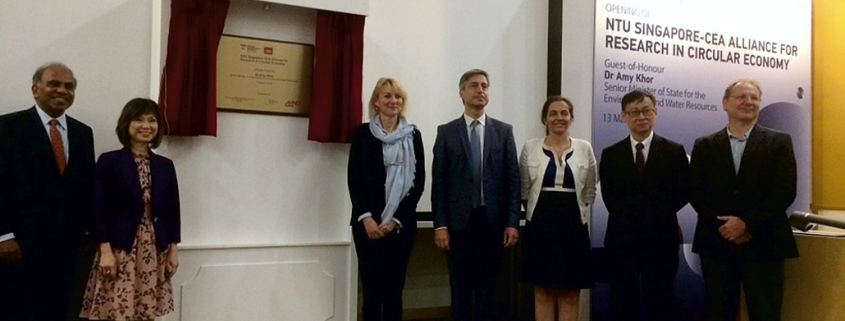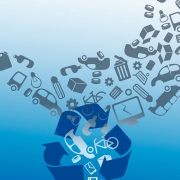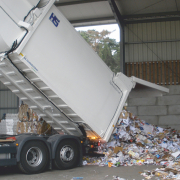French-Singaporean Cooperation on E-Waste
In March, Nanyang Technological University (NTU), Singapore, and the French Alternative Energies and Atomic Energy Commission (CEA – Commissariat à l’énergie atomique et aux énergies alternatives) launched a research center to develop innovative e-waste recycling technologies.
The new center – named the NTU Singapore-CEA Alliance for Research in Circular Economy (NTU SCARCE) – will focus on four research thrusts that address the recycling and recovery of materials from common e-waste such as discarded lithium-ion batteries and printed circuit boards. According to the information, CEA’s first research center outside of France will look at formulating advance e-waste separation and extraction techniques that are eco-friendlier and more energy efficient than current methods. The joint research center is supported by the Singaporean National Environment Agency (NEA) under the agency’s Closing the Waste Loop (CTWL) Research and Development (R&D) Initiative. Together the three organizations are contributing 20 million Singapore Dollar (nearly 15 million US-Dollar) into this collaboration, the French partner informed.
The NTU-CEA research center has four research thrusts that will look into recycling and recovering materials from:
■ lithium-ion batteries;
■ silicon-based solar panels;
■ printed circuit boards from discarded e-waste; and
■ detoxifying plastic parts in e-waste.
“For example, the joint lab will look into developing eco-friendly methods to recycle lithium-ion batteries, and extract up to 75 percent of metals such as cobalt, nickel, lithium and manganese,” CEA announced. One of the solutions would involve using “green chemistry” – a method that focuses on using chemical processes and earth-friendly products that minimizes the use and generation of hazardous substances.
Novel methods
Printed circuit boards are also important e-waste products. These are thin copper plated or etched circuitry boards where integrated chips and other electronic components are mounted on. These boards often consist of metals such as copper, aluminum, gold and silver, as well as valuable organics and ceramics, which are often lost during incineration. Current industrial recycling processes emit harmful pollutants and/or liquid waste that require costly treatment processes so that they can be safely released into the environment. “Researchers will develop novel methods to separate and recover as much organics and ceramics for a variety of applications.” As reported, using the same principles of recovering precious materials and reducing environmental harm, the lab will target sustainable solutions to process solar panel e-waste and toxic plastic materials. Researchers would explore ways to extract silicon and metals from solar panels, which could help reduce the costs to produce new panels. The goal is also to develop a systematic approach to safely sort, detoxify and recycle hazardous plastic materials from e-waste.
In Singapore, about 60,000 tons or 11 kilograms of e-waste per person are generated each year. “This lab will support the nation’s mission to find new ways to recycle e-waste in a sustainable and eco-friendly manner while at the same time extract materials that can be re-used again,” NTU Professor Madhavi Srinivasan, co-director of the center, was quoted.
Photo: CEA
(GR 22019, Page 38)








